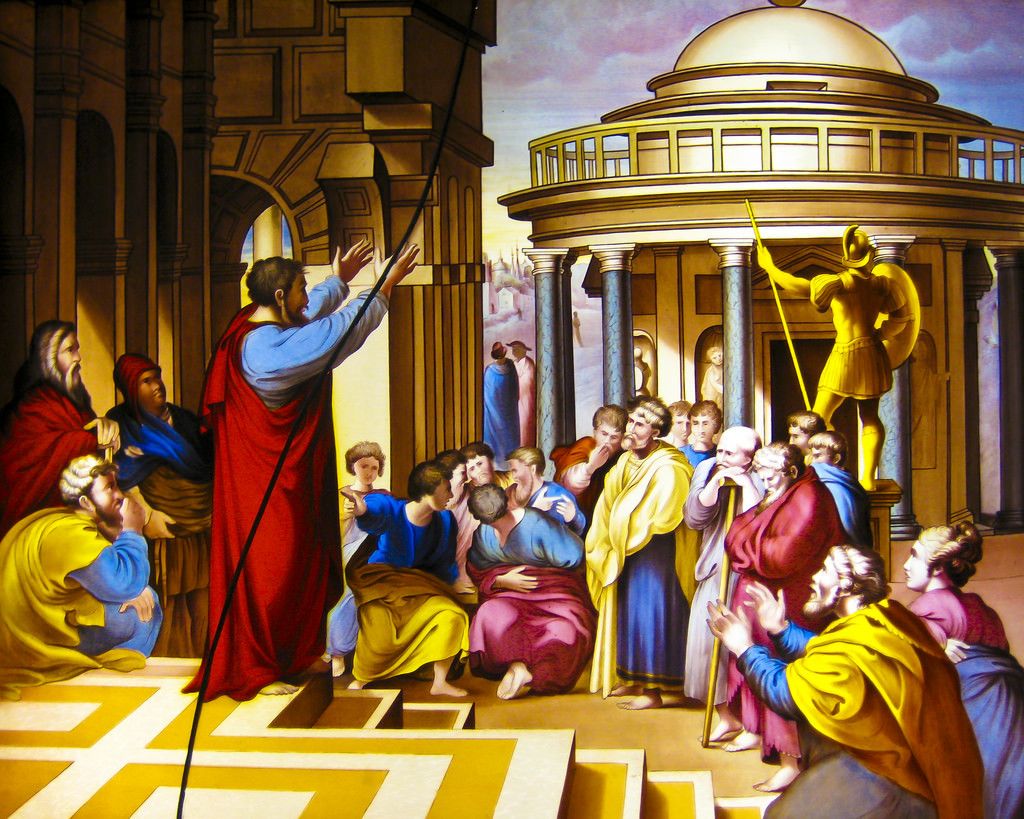The Gospel Seed Always Brings a Harvest – by Milton Hook
Jun 8, 2015 4013
 The Areopagus in Athens is a large sandstone outcrop where, in ancient times, the judiciary would hold court and the intelligentsia would idle their time away in philosophical discussion. It’s rough and rocky nature doesn’t have much ambience and I would certainly take a cushion for my derriere if I planned to sit there for more than five minutes.
The Areopagus in Athens is a large sandstone outcrop where, in ancient times, the judiciary would hold court and the intelligentsia would idle their time away in philosophical discussion. It’s rough and rocky nature doesn’t have much ambience and I would certainly take a cushion for my derriere if I planned to sit there for more than five minutes.
When the Athenian intelligentsia heard that “Paul was preaching the good news about Jesus and the resurrection” they agreed to lend an ear (Acts 17).
Paul attracted his listeners on side by mentioning their shrine to An Unknown God (Gk. agnosto theo). The Athenians did not tolerate atheism but they did allow for agnosticism. That is, they believed there were many gods but their unknown god was not accessible to their senses. So Paul set out to demonstrate that his God was accessible to the senses —- sight, hearing and touch. This God, he argued, is the creator and “He is not far from each one of us,” in fact, “in Him we live and move and have our being.” The last phrase was a quotation from Epimenides, a poet from Paul’s homeland of Cilicia. Then he quoted from a poet of nearby Crete, saying, “We are his offspring,” hoping to further persuade his listeners. Undoubtedly, we do not have the full transcript of Paul’s sermon but we get the gist. Paul’s God, Jesus, had been seen, heard and touched. He was the creator and sustainer. It is around Him that our lives revolve. It is possible to know Him. He is most accessible, unlike the Athenian’s unknown god.
Paul then moved on to talk about His God as the Judge of mankind. The two concepts, creator and judge, were not alien to the Greek’s ideas about their gods. And they would have been aware that the Jews also believed that their Jehovah was both creator and judge of all. But as soon as Paul introduced the distinctive of Christianity, the resurrection of Jesus, it lit his listener’s fuse. The thought sparked and hissed and crackled and finally exploded in disbelief, except for a few.
Had Paul wasted his time? No, by no means! It was probably a relatively small gathering of intellectuals and passers-by. To persuade just one about the resurrection of Jesus would have made it all worthwhile. Luke records that a tiny group accepted the gospel that day, including Dionysius and a woman called Damaris.
The gospel seed always brings a harvest, even if you can only count them on one hand.
– Milton Hook
